How to Get Rid of Acne on Face Overnight
If you've survived a bout of painful acne and wondered how to get rid of lingering acne scars, worry not, we've done the leg work for you. Acne scars can linger for years on end and there's no one-size-fits-all treatment.
We spoke to acne experts Dr. Rakesh Patalay, Consultant Dermatologist at Dr. Sam Bunting Clinic, and Dr. Anjali Mahto, Consultant Dermatologist at 55 Harley Street and author of The Skincare Bible, to find out more about how to get rid of acne scars...
What are acne scars?
Here's where things get technical - but being able to 'read' your scars pays dividends in knowing how to treat them. "True acne scarring results in irregularity of the skin surface," said Dr. Mahto. The scars may be indented (atrophic) or raised (hypertrophic or keloid).
Post-inflammatory hyperpigmentation (PIH) and erythema (red marks) are a form of staining in the skin from old spots. Unlike the indented or raised scars, PIH is flat on the skin.
There are three types of indented scars:
- Rolling scars: shallow with a curved base.
- Boxcars scars: vertical edges, flat base and look similar to chicken pox scars.
- Ice pick scars: deepest of the three and have an inverted V shape.
Rolling and ice pick scars are often caused by cystic acne; raised scars known as papular keloids tend to appear on the shoulders and upper body rather than the face.
This content is imported from {embed-name}. You may be able to find the same content in another format, or you may be able to find more information, at their web site.
What are the best ingredients for acne scars?
Both of our experts agree that if you have severe rolling, icepick or boxcars, it's best to book in with a dermatologist who will be able to provide more effective solutions. PIH and erythema generally fade over time, but there are ingredients that help speed up the process.
Dr. Patalay recommends five main ingredients which work effectively to reduce the appearance of PIH.
- Hydroquinone: Available only via prescription in the UK. This ingredient is often used in skin bleaching products and has been banned for use in over-the-counter products in the UK since 2001. However, in small, regulated doses, it's been known to reduce pigment hence lightening any dark marks.
- Retinoids: This vitamin A derivative tackles a myriad of skin issues from anti-ageing and spots to yes, scarring. "Retinoids are essential as it helps prevent acne recurrence, remove pigmentation and also helps remodel acne scars," explained Dr. Patalay.
- Kojic Acid: Comes from various types of fungi and can also be a byproduct of fermented food such as soy and sake. Often used to lighten age spots and acne scarring as it has the ability to penetrate deep into the skin and is thought to be gentler than hydroquinone.
- AHAs: Alpha hydroxy acids that work on the skin surface to remove dead skin cells to improve texture and discolouration.
- Azelaic Acid : Derived from grains such as rye and barley. Helps to even out skin tone, fade scarring and contains anti-inflammatory properties.

Purifying and Exfoliating Phytoactive Solution
Chantecaille cultbeauty.co.uk
£76.00
With a trio of lactic, glycolic and phytic acid to for an even complexion while willow bark keeps skin clear.

C E Ferulic Antioxidant Vitamin C Serum
SkinCeuticals lookfantastic.com
£126.00
A worthy investment for dry complexions as it fades pigmentation and scars, while boosting moisture and smoothing fine lines.
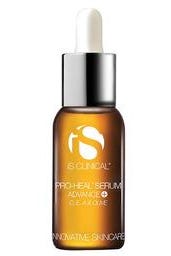
Pro-Heal Serum Advance+
iS Clinical facethefuture.co.uk
£72.00
With kojic acid, vitamin C and retinol to heal scars and brighten pigmentation.
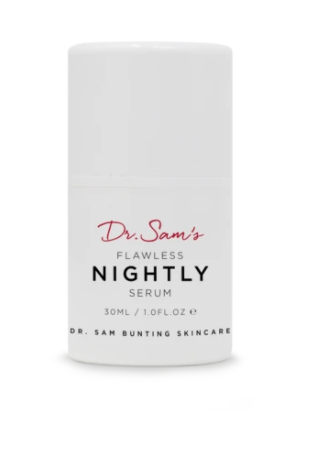
Flawless Nightly Serum
Dr. Sam's drsambunting.com
£39.00
Azelaic acid works hard to reduce redness and pigmentation.
Never forget to apply SPF (with a factor 30, at least) to protect your skin in the daytime when using exfoliating ingredients such as AHA's as they can increase skin's sensitivity to the sun.
What is the best in-clinic treatment for acne scars?
Topical creams can only do so much for indented acne scars. But fret not, there are myriad treatment options available, including microneedling, dermal fillers, TCA CROSS, surgical subcision or punch excision and laser, says Dr Mahto.
Be prepared for gradual improvement, multiple sessions and occasionally a combination of different types of treatments, for example: punch excision with laser. As for costs, it varies considerably depending on your doctor and the treatment prescribed. It won't come cheap but it is at least a better alternative to splashing out money on products that might not make a difference.
Treatment options for raised scars
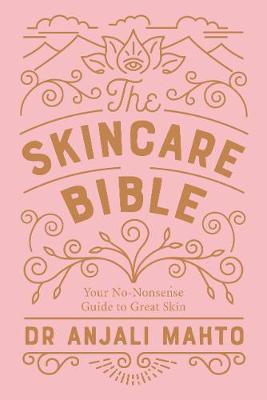
Waterstones
Your No-Nonsense Guide to Great Skin (Paperback)
The Skincare Bible waterstones.com
£14.99
Raised scars (keloid or hypertrophic) are more commonly associated with darker skin types or in acne scarring affecting the jawline, central chest and upper shoulders. Treatment usually involves injection of steroid into the skin to flatten out the affected area.
Having said that, it's important that the active acne is taken care of first. "Treatments should be carried out only once active acne has been switched off, and always by a health professional with experience in the different types of treatments available e.g. a consultant dermatologist or consultant plastic surgeon with interest in scars," said Dr. Mahto.
How do you prevent acne scars?
It's an age-old cliché but it's crucial to not touch your spot. "Acne scarring doesn't just result from inflammatory acne. It can develop because spots are traumatised i.e. squeezed, picked, scratched, or scrubbed," explained Dr. Patalay.

Skin Perfecting 2% BHA Liquid Exfoliant
Paula's Choice cultbeauty.co.uk
£10.00
Combination and spot-prone complexions will love this salicylic acid treatment.
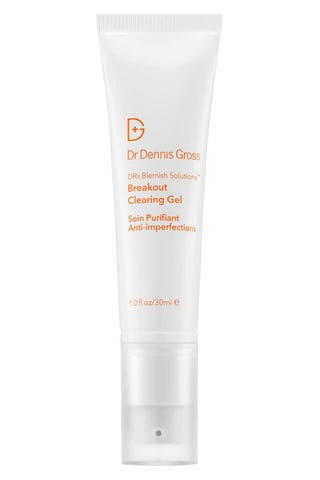
DRx Blemish Solutions Breakout Clearing Gel
Dr Dennis Gross lookfantastic.com
£32.00
A potent treatment with salicylic acid and niacinamide to treat and prevent pimples.

Hydro-Stars, £11.99
Starface starface.world
Got a sore spot? Patch it up with these stickers to speed up healing.
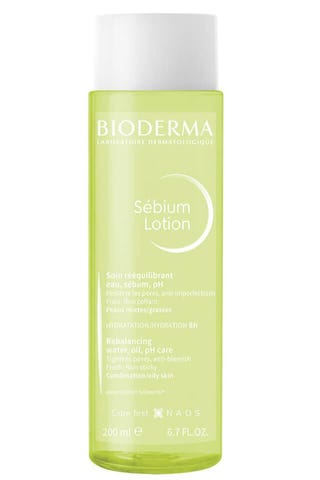
Sébium Clarifying Lotion
Bioderma lookfantastic.com
£11.00
For a targeted approach, pour onto a cotton pad and gently press on the blemish to minimise redness and swelling.
He advises to instead treat the pimple with an ingredient that will resolve the spot as quickly as possible to reduce the scarring risk. The will be either an anti-inflammatory (think salicylic acid), antibiotic, retinoid or a combination of these.
For more extensive acne flare ups, your doctor may suggest a course of tablet antibiotics, or discuss using medications such as spironolactone or isotretinoin (Roaccutane).
How does ageing affect acne scars?
Scarring can appear more prominent due to general loss of collagen as we age. On the bright side however, PIH marks do generally fade over time.
What's the best way to treat fine lines and acne scars?
Retinoids provide the one-two punch for combatting PIH concerns and the visible signs of ageing. "A prescription strength retinoid (tretinoin) is usually more effective than over-the-counter skincare," said Dr. Mahto. Speak to your GP or try online skincare subscription service Dermatica or Skin+Me. Both offer prescription-strength skincare at £19.99 per month after a virtual consultation.
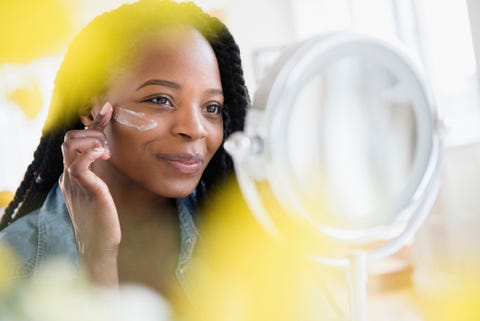
JGI/Jamie Grill Getty Images
For over the counter buys, look out for products containing retinols which belong to the retinoid family. Check that it contains at least 0.1% retinol and incorporate it into your night time routine.
Lasers such as Erbium and carbon dioxide laser work wonders but Dr. Mahto stresses the importance of seeking advice from a trained professional to avoid wasting hard-earned money and time, as skin issues are unique to each individual.
Can you get rid of scarring with skincare?
Indented scarring doesn't respond to topical skincare as the damage is in the deeper layers where skincare is unable to penetrate. But a good skincare routine can help with PIH and erythema.
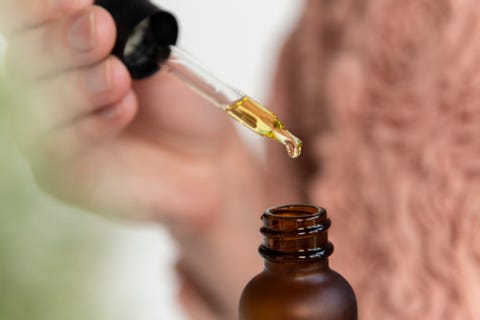
Jamie Grill Getty Images
Dr. Mahto recommends layering a vitamin C under sunscreen in daytime and using retinols at night. AHAs are also a great addition for either day or night, but alternate them with retinols and start with a gentle formula as too much of a good thing can weaken your skin's natural barrier.
When should you see a GP or dermatologist about acne scars?
If the appearance of your scars (or even your skin in general) affects your everyday activities, self-confidence and mood, it's time to see a professional. It is completely normal to be psychologically affected by acne, and don't let anyone brush away your concerns. Speak to your GP and get a referral to a dermatologist who can help.
Are the scars permanent?
It is a myth that skin can revert to being perfectly smooth after scarring. However, advances in technology in today's treatments can significantly improve their appearance.
Consistency is also key: Remember to always cleanse, hydrate and protect your skin in order to keep your spots in check.
Like this article? Sign up to our newsletter to get more articles like this delivered straight to your inbox.
SIGN UP
In need of some positivity? Get delicious recipe ideas, uplifting lifestyle news, and fashion and beauty tips. Make the most of your time at home and enjoy Good Housekeeping delivered directly to your door every month!
SUBSCRIBE NOW
This content is created and maintained by a third party, and imported onto this page to help users provide their email addresses. You may be able to find more information about this and similar content at piano.io
How to Get Rid of Acne on Face Overnight
Source: https://www.goodhousekeeping.com/uk/beauty/a30208150/how-to-get-rid-of-acne-scars/